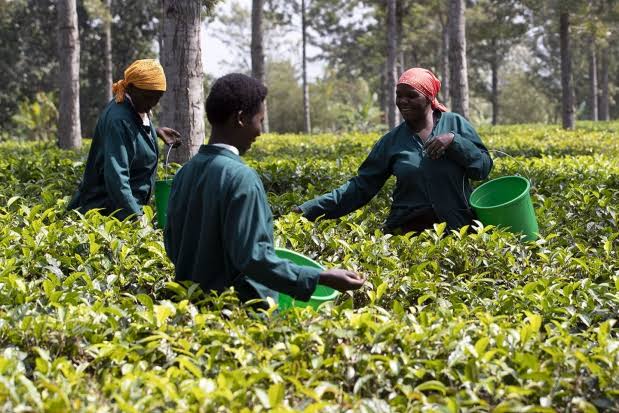Value Addition Rescuing Uganda’s Tea Market
By Stephen Ainganiza & Doreen Nasiima – Kabarole District
For decades, Uganda’s tea industry has grappled with low global prices and stagnant earnings,
especially for smallholder farmers who form the backbone of the sector. But a quiet transformation is underway.
As consumers grow more health-conscious, demand for specialty teas rises and farmers are discovering that value addition,
particularly through herbal infusions, may hold the key to revitalizing their livelihoods.
Uganda’s Tea Export Earnings 2024
A Farmer’s Innovation
In Kabarole, Willy Businge, a small-scale tea farmer under Tooro Organic Producers Association,
began experimenting with herbal blends after attending a local training on agro-processing. Inspired by growing
demand for wellness teas globally, he started blending green tea with indigenous herbs like spearmint, lemongrass,
rosemary, and ginger—all grown locally.
“My trial was to assess if people would like it, but to my surprise, they were willing to pay up to three times the
price of regular tea.” – Businge
INSERT BUSINGE WILLY PHOTO
A National Push for Value Addition
The government is also taking notice. Through initiatives by the Ministry of Agriculture, Animal Industry and Fisheries (MAAIF),
Uganda Industrial Research Institute (UIRI), and NARO, farmers are being trained in post-harvest handling, branding, packaging,
and herbal processing. Dr. Rabooni Tumuhimbise from NARO noted that value addition is the only way farmers can fetch higher prices.
INSERT RWEBITABA PRODUCTS PHOTOS
Health Benefits of Spiced Tea
Nutritionists highlight that spiced teas provide numerous health benefits, from boosting immunity to aiding digestion.
Spices like cloves, ginger, nutmeg, cinnamon, and mint are high in antioxidants and reduce inflammation in the body.
Spiced teas are also low in calories, making them ideal for weight management.
Uganda’s Tea Industry Snapshot
- Over 80,000 farming households involved in tea production.
- Supports more than 200,000 skilled and unskilled workers.
- Approximately 1,000,000 people directly derive their livelihood from tea.
- Estimated 50,000 hectares of tea in production.
INSERT TEA PLUCKING PHOTO
In the end, Uganda’s tea story is no longer just about quantity but about creativity,
entrepreneurship, and the power of value addition to unlock new markets.
